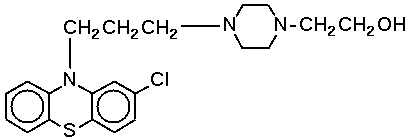CONSTIPATION
Define constipation as no b.m. in 24 hours, constipation does not improve with continued opioid analgesic treatment
RX:
2 senna + docusate Tabs (e.g. Senokot S) po q.hs Senna is available as a tea. If no relief in 24 - 48hrs:
Increase:senna on bid basis
Add:bisacodyl (Dulcolax) 2 - 3 tabs po q.hs (range: I tab q.hs to 3 tabs t.i.d) Metoclopramide (Reglan) 10mg to 20mg po q.i.d or 10mg to 20mg po q.i.d Cisapride (Propulsid) 10mg to 20mg po, q.i.d (with cisapride watch for drug interaction). May be used in addition to senna or in some patients instead of senna.
Persistent Constipation
If no relief in 2 - 3 days
non-impacted.
Magnesium citrate 8oz po
Buffered saline oral solution
(Fleet Phospho-Soda)
Mineral Oil
Bisacodyl (Dulcolax) suppository I pr
Lactulose 45 - 60cc po q.2hrs'till b.m.(lactulose will often cause
abdominal cramps and flatulence
Buffered saline enema (Fleet Phospho-Soda) Enema I pr if rectal exam reveals stool impacted.
Disimpact Enemas until clear
Increase daily senna and bisacodyl
For resistant constipation may try metoclopramide infusion (I I mg/kg) over 2 - 4 hours
NAUSEA
Nausea is very common with the use of opioid analgesics and may be dose dependent
RX:
Relieve constipation
Andernetics
If there is a vestibular component, meclizine(Antivert) 12.5mg
25mg po q.i.d or scopolamine may be effective.
Metoclopramide (Reglan): Has po & IV forms
Prochlorperazine (Compazine): Has po, suppository & IV forms
Thiethylperazine (Torecan): Has po form
Perphenazine (Trilafon): Has po (tablet & liquid) & IV forms
Cisapride (Propulsid): Has po form
Haloperidol (Haidol): Has po & IM forms
Droperidol (inapsine): Has IV form
Occasionally one may see benefit with trimethobenzamide
(Tigan) and hydroxyzine (Atarax and Vistaril)
With frequent use of antiernetics monitor for extrapyramidal symptoms- may give low doses of diphenhydramine (Benadryl) avoid in AIDS Dementia (try amantadine).
URINARY HESITANCY/RETENTION
Urinary hesitancy or retention is fairly common.
RX:
Often terazosin (Hytrin) at 1-3mg q.hs ameliorates this. For men, may also use tarnsulosin (Flomax).4mg I qd, Y2hourpc
SEDATION
Start with a careful interview concerning sleep including questions about induction, awakening, total hours of sleep, whether the patient is refreshed upon awakening, snoring, and partner reports of apnea Evaluate other centrally acting medications
RX:
Caffeinated beverages
Caffeine tablets
Methylphenidate (Ritalin) 10-40mg po q.am and 5 - 40mg po q.noon (may use up to 1.5mg/kg q.d)
Dextroamphetamine (Dexadrine) 5-20mg p.o. q.am and 5-20mg po q.noon
Pemoline (Cylert) 18.75mg, 1-5 tabs q.am
- periodically check liver function tests
SEXUAL DYSFUNCTION
Inquire about altered libido, sexual function low, testosterone in both men and women is common.
Testosterone replacement is often effective for men, check peak and trough testosterone levels.
RX:
For men, the usual replacement dose is 200mg of testosterone enanthate
IM q.2weeks and for women the usual dose is 15mg IM q.2weeks After establishing normal range testosterone levels in men, erectile problems may persist.
Try sildenafil (Viagra) 50mg, 1/2 - 2 hours q.pre-relations. Ejaculatory dysfunction may be related to the timing of short acting opioid dose.
DELIRIUM
Delirium does not develop with opioids at steady state/stable dosing unless there is a change in clearance of opioid metabolites. Delirium commonly occurs in the setting of opioid analgesics When infection develops, a CNS event has occurred or another CNS active medication has been added.
RX:
Delirium related to opioids is an indication for hydration or opioid rotation as are myoclonic jerks and seizures
SWEATING
Diaphoresis/Sweating is common
RX:
May use glycopyfflate (Robinul) I mg 1-3 qhs or hyosMwiine (Levsin) 125mg 1-2 q.id.
PRURITIS
Pruritis is common and may be dose dependent
RX:
Pruritis may improve with diphenhydramine (Benadryl) or cimetidine /ranitidine/famotidine
JOINT PAIN
Joint pain, espec
RX:
This may resolve with time, may be opioid specific, and may respond to antiinflammatory agents
EDEMA/MYOSITIS
Lower extremity edema may occur with aggressive dosing of opioids - especially with oxycodone. Myositis is dose dependent and has developed when doxepin and citalopram have been added to stable doses of opioids. With or without pain, lower extremity edema with opioids may be caused by myositis, check CPK
RX:
If myositis is present based on clinical exam and/or lab studies, rotate opioids or d/c new agent
Alfred L. McKee, Jr, MD Staff Oncologist, Baystate Medical Center Assistant Professor Medicine Tufts University School of Medicine Boston, Massachusetts
Copyright Rehabilitation in Oncology 1999
Provided by ProQuest Information and Learning Company. All rights Reserved


